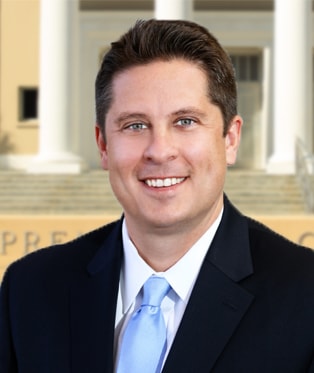Daytona Beach Nursing Home Abuse Lawyer
The decision to place a loved one in a long-term care facility can be emotionally painful and is often based up the expectation that the nursing home or assisted living facility will provide a safe, engaging environment and the level of care that your loved one requires. Abuse of elderly residents in nursing homes and assisted living facilities can be physical, emotional and financial. Children of these senior citizens should pay attention to their loved ones’ environment and know that our Daytona Beach nursing home abuse lawyers are available to help.
Nursing home abuse takes many different forms, some involving intimidation or threats against the elderly, some involving neglect, and others involving financial chicanery. Our Daytona Beach personal injury lawyers can help you prove various types of abuse are harming your loved ones.
Some of the most common abuse types include:
-
Physical Abuse – physical elder abuse is non-accidental use of force against an elderly person that results in physical pain, injury, or impairment. Such abuse includes not only physical assaults such as hitting or shoving but the inappropriate use of drugs, restraints, or confinement.
-
Emotional Abuse – this occurs when people speak to or treat elderly persons in ways that cause emotional pain or distress. Verbal forms of emotional abuse include: Intimidation through yelling or threats, humiliation and ridicule, and habitual blaming or scapegoating.
-
Nonverbal psychological elder abuse – this includes ignoring the elderly person, isolating an elder from friends or activities, and terrorizing or menacing the elderly person.
-
Sexual Abuse – contact with an elderly person without the elder’s consent. Such contact can involve physical sex acts. Other sexual abuse can include activities such as showing an elderly person pornographic material, forcing the person to watch sex acts, or forging the elder to undress.
-
Neglect – failure to fulfill a care taking obligation that is either intentional or unintentional
-
Financial Exploitation – this involves unauthorized use of an elderly person’s funds or property, such as misusing an elder’s personal checks, credit cards, or accounts. Stealing cash, income checks or household goods, forging the elder’s signature, or engaging in identity theft are all ways the caregiver might exploit the elder. Elders may be involved in a scam such as an announcement of a “prize” that the elderly person has won but must pay money to claim, phone charities, or investment fraud.
-
Healthcare Abuse – Unethical doctors, nurses, hospital personnel, and other professional care providers. Health Care abuse and fraud includes: not providing health care, but charging for it, overcharging or double billing for medical care, over or under medicating, and Medicaid fraud.
Nursing home neglect and abuse is often difficult to detect, and families should be on the lookout for common warning signs. There are various warning signs of a problem potentially involving nursing home neglect and abuse that are commonly seen in Florida:
- Untreated bedsores, wounds, cuts bruises, or welts
- Abnormally pale complexion
- Bruises in a pattern that would suggest restraints
- Excessive and sudden weight loss
- Fleas, lice, or dirt on resident or in resident’s room
- Poor personal hygiene, unpleasant odors or other unattended health problems
- Torn clothing or broken personal items
Every certified nursing facility in the country is required to comply with a minimum set of federal standards of care and rights for nursing home residents, as set forth in the Federal Nursing Home Reform Act, or OBRA of 1987. A few of the key components of this Act include:
- Focus on a resident’s quality of life and the quality of care;
- The right to freedom from inappropriate and unnecessary chemical and physical restraints;
- Prohibitions on going to family members to pay for Medicaid and Medicare services; and
- The right to participate in and/or organize a resident or family council.
At Bundza & Rodriguez, P.A. our Daytona Beach nursing home abuse lawyers have years of experience representing people who are injured in nursing homes and other elder care facilities. No matter how your loved one was injured, we offer a free initial consultation to discuss your case. Contact our office today at 866-785-5470.



